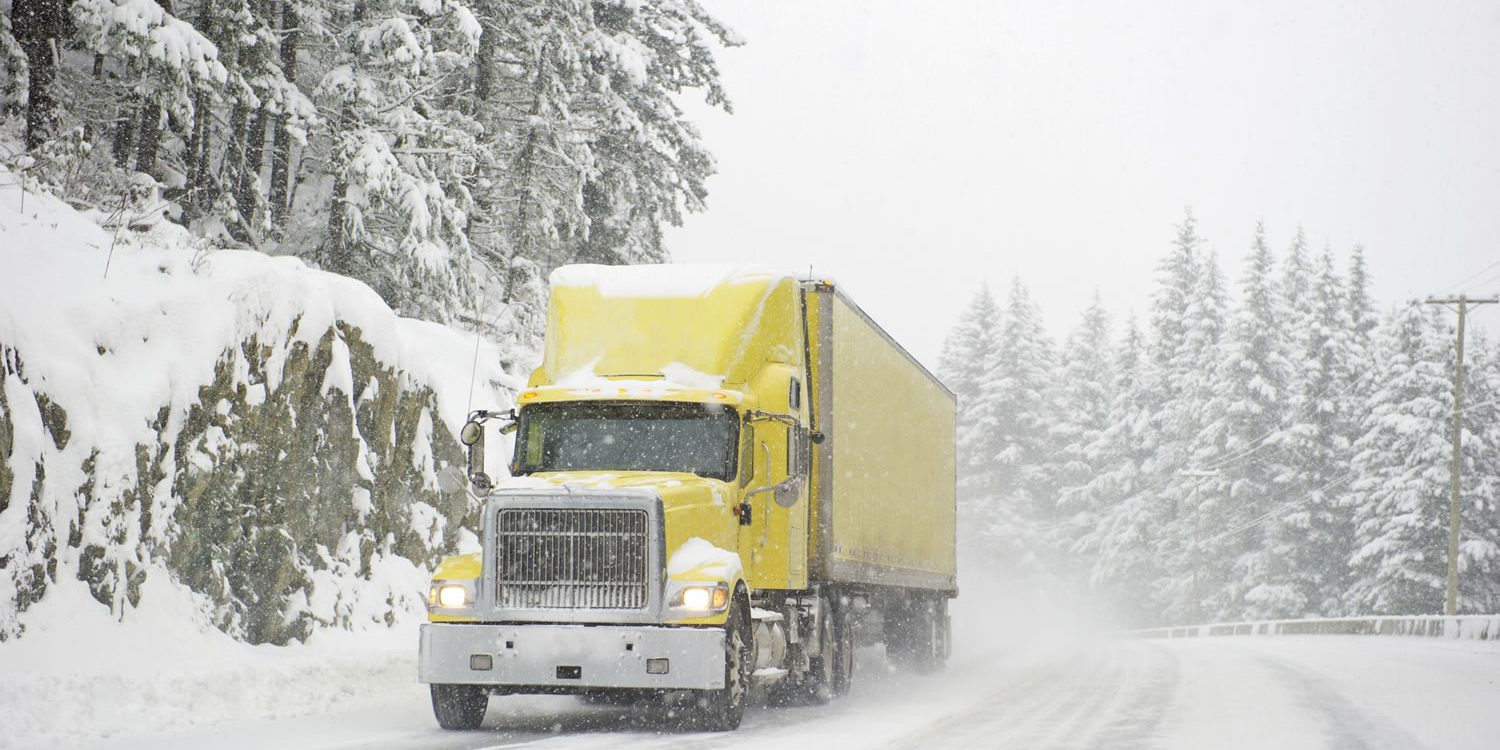With winter well on its way, it’s important to take be prepared. Below is are a number of key factors of operating in a cold climate that should be considered at this time of year.
Tires
Check your tires often. Freezing temperatures causes a reduction in tire pressure. This increases rolling resistance, which reduces fuel economy, and can increase the probability of breakdowns and accidents. Look for uneven wear patterns, as this can indication poor alignment, worn bearings or kingpinA steel pin on the front of a trailer that connects to the fifth wheel, allowing for articulation and movement. More wear. Also make sure your tires are properly inflated. It’s also good practice to keep tire chains in your rig. You never know when you’re going to need them.
Engine
As temperatures dip, you want to start using a block heater whenever you leave your vehicle parked for any length of time. Also be sure to plug in when your truck is at normal operating temperature. They are not designed to heat up coolant from ambient temperatures, they are design to maintain temperature. You’ll also want to check the cord for damaged or exposed wires.
Fuel
Did you know that cold weather can thicken diesel fuel into a gel? This can potentially damage the fuel system as well as the engine. In the winter months when temperatures are low, it is a good idea to use a mix of diesel fuel with additives designed to prevent these types of problems.
Battery Maintenance
You want to be proactive and make sure your battery isn’t going to let you down this winter. Cold weather can drain a battery fast. We suggest making sure your battery is clean and corrosion free, and also charge and test your battery to ensure optimal function.
General Maintenance and Preparedness
Make sure your fluids are topped up including adding the proper windshield washer fluid designed for extremely cold temperatures. Check your wiper blades and replace if necessary.
You also want to make sure your winter kit is stocked. We recommend you have food and water, extra wiper blades, windshield washer fluid, and gloves.
Check your engine belts. They run everything from the alternator to the air conditioning compressor. Mechanics recommend getting them checked every 40, 000 Km.
The air dryer prevents water from getting into the brake lines, where it can freeze, so it’s a good idea to make sure it’s in good working order.

